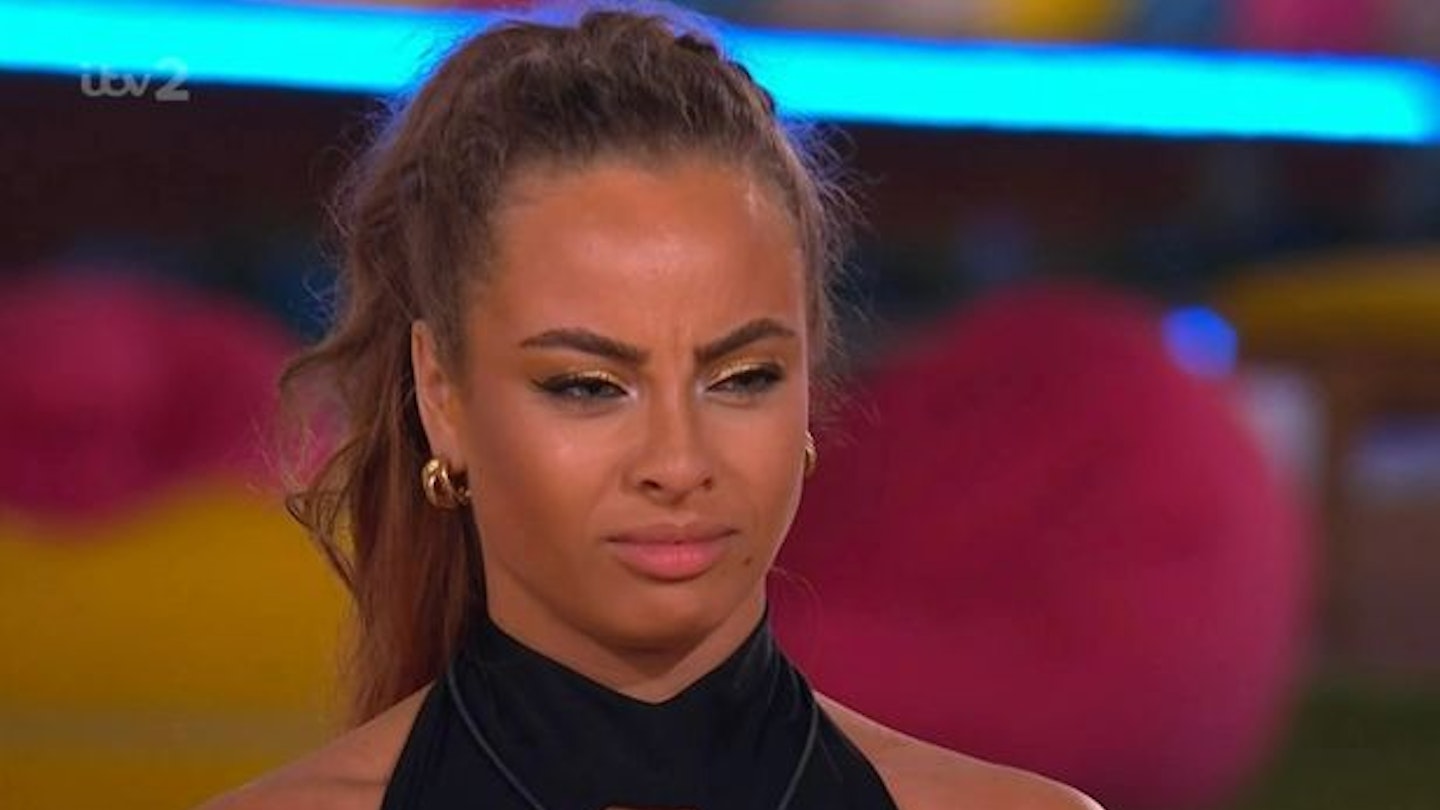Love Island has taken huge steps to overhaul its duty of care policy towards its stars in recent years, after the high-profile suicides of three major names associated with the show.
Now, it’s been confirmed that contestants on this year’s upcoming winter series, set to air as soon as January 16, will be asked to disable their social media accounts for the duration of their time in the villa to help minimise the impact of stories written about them when they head back into the real world and to combat the ‘adverse effects of social media’.
A statement from ITV read, ‘As part of extended measures to protect both the Islanders and their families from the adverse effects of social media, participants will be asked to pause handles and accounts on their social media platforms for the duration of their time on the show. Islanders’ accounts will remain dormant while they are in the Villa, so that nothing is published on their behalf.’
Traditionally, contestants’ social media accounts have been manned by trusted friends or family while they’re in the villa, and in some cases the social media alter egos have come to be just as well loved as the Islanders themselves – who could forget the top bantz between Ikenna Ekwonna and Indiyah Polack’s account handlers last series, who made the action on Twitter almost as unmissable as the stuff in the villa?
But viewers can expect no such hijinks this year. It may not have escaped your notice that info on the upcoming series, including who’s set to enter the villa, has been basically non-existent. With little over two weeks before Maya Jama makes her Love Island debut as its new host (after Laura Whitmore stepped down last year), we’d expect to have been drip fed enough info at this point to satiate our mounting appetites for ‘my type on paper’s and ‘I’d give myself a ten out of ten’s.
Yet this year, not so: as well as the instruction to keep their accounts ‘dormant’ during their time in the villa, upcoming contestants are currently undergoing ‘comprehensive’ training on everything from inclusive language, identifying ‘negative behaviour patterns… associated with coercive and controlling behaviour’, what they can expect from their interactions with producers and being filmed 24/7 and the support available to family members while they’re on TV.
It all begs the question: how many more measures and requirements can reality TV producers implement to really protect contestants? The nature of the genre, coupled with social media commentary, means it’s surely impossible to guarantee its stars to emerge unscathed. And, while all reality alumni risk trolling and negative press, Love Island could be especially hazardous.
With a global audience that far surpasses other of the UK’s favourite reality shows, and with the show itself being primarily made up of teenagers and young people with a penchant for keyboard warrior-ing, the public wrath faced by Islanders is particularly harrowing. Many have spoken out about the abuse they’ve faced, with 2019’s Amy Hart admitting she made use of the show’s follow-up counselling – part of their revised aftercare following the suicide of Mike Thalassitis earlier that year – for two years afterward.
Often though, negative press isn’t merely the spiteful backlash to an unflattering bikini but the real-life consequence of toxic behaviour which should be challenged. Last year’s summer series saw record numbers of Ofcom complaints over some of the men’s actions, including alleged bullying,Luca Bish’s concerning possessiveness over Gemma Owen and Jacques O’Neill’s angry outbursts. While each was clearly schooled in how to deliver a sincere-sounding apology – with Luca and Dami Hope apologising to Tasha Ghouri on camera and Jacques actually leaving the villa all together – this year producers apparently hope to avoid any potential scandals by delivering exhaustive training on how not to be a knob. (Sceptics might point out the contestants are adults who, we might assume, have already developed their own styles of courtship, and a fortnight’s worth of reading materials and online seminars is unlikely to mitigate twenty-odd years of bad social habits, if they have them.)
So will this be enough, as Love Island’s audience look for new ways to interact with the show and its contestants? The show can already feel like a mind-bending carousel of rule-making and breaking, apologies and social media statements, all of which has lead to the criticism that recent series are unrecognisable from the authentic, rough-around-the-edges drama of years gone by. It seems difficult for production's more softly-softly approach to co-exist within the social media-dominated culture that faces Islanders leaving the villa.
Dr Matthew Gould, independent reviewer of the show's duty of care policy, says, 'The enhanced safeguards introduced for Love Island 2023 demonstrate ITV’s commitment to evolve Duty of Care protocols to minimise harm, where possible. The bold decision to pause Islanders’ social media activity during the new series is testament to ITV’s serious intent, especially as this input provides both a benefit to the appeal of the programme and a potential source of mental health problems.
'Balancing this “tight-rope” requires both the identification of which safeguards have the greatest positive impact on participants' wellbeing and the professional partnership, put in place by ITV, especially between producers and their welfare teams, and most importantly, the contributors themselves.'
Producers may believe the wellbeing of the Islanders can be balanced with the show's requirement for conflict and scandal, but we're not so sure. Can it be done? Time will tell.
